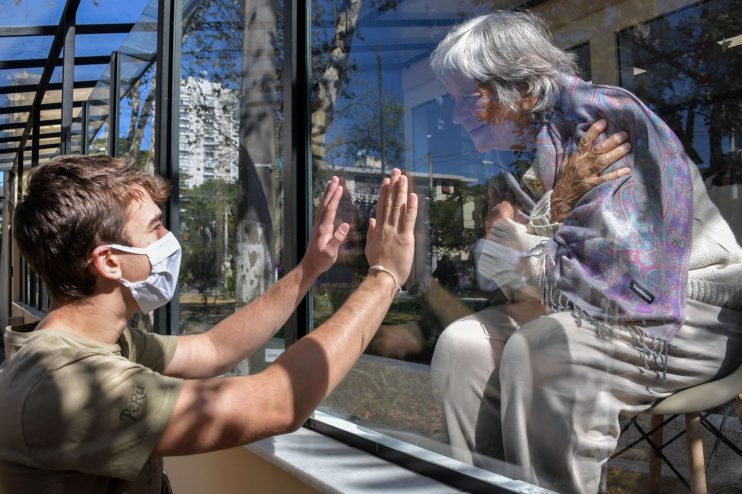Locking down care homes risks the very lives we are trying to protect

An overwhelming number of the UK’s elderly population are at risk — not just from Covid-19, but from our response to it.
The recent news that Pfizer has developed an effective vaccine has been a source of optimism for millions, but mass immunisation is still a long way off. Many of our most elderly, especially those with dementia, do not have time to spare. And thanks to the latest government guidelines that all but bar care home visits, the time that they do have is being wasted as they spend their days alone.
If you don’t have a relative in a care home, you might have missed the furore over the new guidelines that outline “prison-style screens”, visitor pods and window visits. Experts and family members alike have voiced their concerns that this attempt to protect people may in fact kill them.
The responsibility placed on care homes to ensure they are Covid-secure means the risks associated with accepting visitors are too high for many providers to allow. The required safety measures are too complicated for many facilities to implement, and even if they are put in place they will have unintended consequences for vulnerable residents: screen partitions, for example, are impractical for those with dementia, many of whom may be bed-bound and find speech difficult even in ordinary situations.
The sad reality is now that thousands of families will be unable to visit their loved ones at all, who in turn face a winter of isolation. For those already in cognitive decline, this could wreak unspeakable devastation and tragedy.
UK care homes house 400,000 individuals, around 70 per cent of whom are believed to suffer from dementia in some form. The danger of Covid-19 for these vulnerable people is well known, but the unspoken danger of lockdown restrictions cannot be overstated.
The upheaval and disruption to routines is known to accelerate the progress of cognitive conditions such as dementia, while contact and communication with loved ones can improve overall wellbeing and quality of life. Lockdown is therefore a perfect storm for our most vulnerable.
Many residents with cognitive issues do not understand why they can no longer interact with one another or see their loved ones. Desperate families have reported that their relatives feel abandoned and scared.
Even within care homes, steps are not being taken to ensure the wellbeing of residents. The stimulation and socialisation provided by group play are invaluable for those with dementia, while technologies like interactive light play are proven to help boost morale and reduce apathy in residents. But even these opportunities are being restricted or deprioritised against the backdrop of the virus.
We cannot cut out socialising and contact with loved ones and expect no repercussions. Recent figures should give us a stark reality check about the impact of lockdown on the elderly: the Alzheimer’s Society reports that the vast majority (82 per cent) of dementia patients have shown deterioration since measures were put in place. This includes difficulty concentrating, memory loss, and increased agitation.
Sadly, this is not a trend that can be easily reversed, as the damage is already being done — figures from the Office for National Statistics show that deaths from dementia and Alzheimer’s disease in private homes in England rose 79 per cent during the first lockdown.
The notion that the government must stop Covid-19 at any cost, even if that means suspending the rights and ignoring the wellbeing of those in long-term care, is a dangerous one. It fails to take into account the importance of maintaining not just life but quality of life for care home residents.
It is simply not the case that preventing infection and providing effective care — which ensures mental as well as physical wellbeing — need to be mutually exclusive.
We now understand more about Covid-19 and its spread, testing capabilities have increased and PPE has become more available than it was in March. There are ways — from individual risk assessments, to ensuring meeting places are well ventilated — for restrictions to be sensibly loosened. Family carers must also be granted key worker status and made a priority for weekly testing and PPE. It is simply not right that they should be barred from access to their loved ones at a time when support and contact matter more than ever.
We need to ask ourselves if we are a society that values older people — not just keeping them alive, but ensuring that their lives remain worth living.
The government must move swiftly to implement measures that can safely reconnect care home residents with their vital support networks. We must act now to prevent a human rights crisis and save lives.
Main image credit: Getty